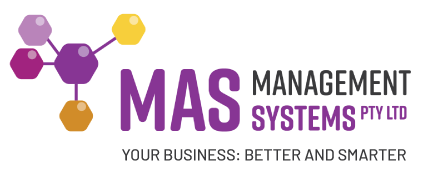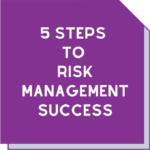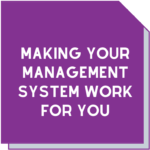NEW (FINANCIAL) YEAR RESOLUTIONS
 Happy New Year!!
Happy New Year!!
While a new financial year probably won’t see you popping champagne and singing Auld Lang Syne (unless you moonlight as an Accountant) it’s still an important time of year.
For those very organised folks who regularly scan and file their receipts and make notes about expenses, end of financial year tax returns won’t hold any anxiety.
But for the somewhat less organised among us, the sudden realisation that we have 12 months’ worth of paperwork in boxes, emails or random computer files to sort through can be daunting.
Being organised is critical if you’re a business owner or manager. It’s very easy to get caught up in the day-to-day running of your business. But the end of financial year (EOFY) is an excellent time to reflect on your progress and perhaps implement some changes.
Let’s look at six steps you can take to make the next financial year a happier one.
Step one: Find your business plan
Did you develop your business plan, pat yourself on the back and then tuck it into a drawer? Well, it would have been better if you stuck it directly onto your computer monitor! Your business plan should be a living document that’s reviewed and updated regularly.
We’ve written previously about reviewing business plans. A full review should be done once a year, but smaller reviews should be done monthly including financial goals vs reality.
However, there’s no need to wait until the end of the month to make changes or review your plan. Do this any time you see changing trends or discover an opportunity to be explored.
Step two: Set business goals
 Goal setting is a cliché for a reason. Setting business goals is important for everyone but critical for a successful business.
Goal setting is a cliché for a reason. Setting business goals is important for everyone but critical for a successful business.
Business goals are often aligned to financial outcomes.
However, you should also consider including other goals such as those for staff (increasing the number of staff members; consider outsourcing some task to free up skilled personnel) and personal management goals.
Use the SMART method to break your larger goals down into smaller, manageable steps. And share your business goals with your team. After all, they’re the ones who’ll be helping you get to where you want to be.
Don’t look back and wish you’d achieved more, set the goals to make it happen.
Step three: Check your systems
Checking your business processes is a routine practice for labs. If you think it would work for you, invest in tools for automating parts of those processes.
However, don’t invest in the shiny newest thing because you’ve been dazzled by some smooth sales talk. Be sure whatever you implement is working for your business and its growth, not making your processes more difficult.
This could also include the layout of your work environment. There may be some small layout change that could make a task or process smoother. Check in with your staff about this too; after all, they’re the experts in their area.
Changes may also need to be made to ensure you’re continuing to provide a Covid safe workplace. Workstations may need to be moved or modified. The EOFY is a good time to investigate this in case you need to invest in additional equipment or move people around.
Automate where you can and where it makes sense. If you’re still using manual accounting processes that are paper based, investigate an automated system. This will produce professional looking printed or pdf invoices, and update linked systems such as accounts receivable and ledger.
A good system will also mean you have easy and smooth access to reports and financial information. Which brings us to…
Step four: Use your information
You’ve extracted your up-to-date information from your accounting and management systems and have your reports in front of you.
Use this system generated information to determine immediate actions. Are your sales running behind projections? Are your expenses running over budget? Investigate issues before they become a bigger problem.
This is also an opportunity to review what’s going well – perhaps there’s been an upsurge in certain test requests that was unexpected. Can you capitalise on this?
Step five: Upskill where necessary
 Growing businesses need growing staff. This could mean taking on more staff but could also mean providing additional training to the ones you already have.
Growing businesses need growing staff. This could mean taking on more staff but could also mean providing additional training to the ones you already have.
And of course, you’re probably wearing multiple hats as the business owner or manager. Do you have the skills you need to grow your business? Do you have the time to gain the skills you need?
You could find that outsourcing those tasks such as marketing or research makes better sense. Being able to toss one of those hats to a qualified and trusted resource will make a huge difference to you mentally and free up some valuable time.
Some of that time could be used to keep abreast with current industry trends. Try joining a relevant industry group such as the Royal Australian Chemical Institute or the Australian Organisation for Quality. Or you could simply subscribe to a business journal.
Whatever the case, you have better things to do with your time than learning how to create Excel pivot tables or writing better headlines!
Step six: Risks and opportunities
If your business has ISO 17025 or ISO 15189, you’ll know that the ISO standards are big on risk management. In fact, the focus for businesses is risk and opportunities plus innovation.
Look for new and better ways of doing things to keep your business competitive and even gain an advantage.
In conjunction with reviewing your business plan, you could discover more effective process development or come up with new products.
The EOFY is also a good time to review your insurances – are you paying too much? Are you insured for the risks you’ve identified?
How can we help?
As well as providing another set of eyes for examining your management systems and processes, we can support your business with training and advice.
Plus, as a small business owner, Maree has first-hand experience with starting and growing a business! Contact her on 0411 540 709 or email us to set up a confidential discussion at info@masmanagementsystems.com.au
You don’t have to do this alone!
Download the article New (financial) year resolutions






